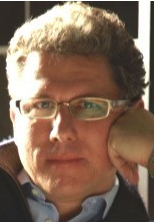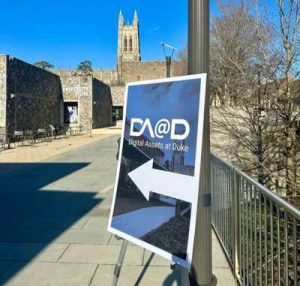At Duke University, Nicholas Zaldastani, Co-Founder, Cumulus Encrypted Storage System, Talks Cloud-Based Storage and Future of Digital Assets
Decentralized Object Storage Service completed in 4Q22, and launched on CESS cloud storage network V0.5.3 testnet
This is a Press Release edited by StorageNewsletter.com on February 3, 2023 at 2:01 pmCumulus Encrypted Storage System (CESS), the 3rd gen decentralized cloud-based data storage protocol built exclusively for Web3, was invited to join the Digital Assets at Duke (DA@D) conference held at Duke University.
 The project was represented by Nicholas Zaldastani, co-founder and chairman, Cumulus CESS; among other guests – officials from the U. S. Securities and Exchange Commission (SEC), the Commodity Futures Trading Commission (CFTC), Goldman Sachs, Galaxy Digital, blockchain intelligence analysis company TRM Labs, and blue-chip Web3 firms Uniswap, Coinbase, and Binance.
The project was represented by Nicholas Zaldastani, co-founder and chairman, Cumulus CESS; among other guests – officials from the U. S. Securities and Exchange Commission (SEC), the Commodity Futures Trading Commission (CFTC), Goldman Sachs, Galaxy Digital, blockchain intelligence analysis company TRM Labs, and blue-chip Web3 firms Uniswap, Coinbase, and Binance.
Digital assets at Duke University
The conference brought together key industry players, regulatory experts, and researchers across the fields of Web3 and digital assets to discuss the development, delivery and governance of the next generation of digital asset environments. It was hosted by the Duke Pratt School of Engineering and the Duke Financial Economics Center and explored new frontiers in digital asset development, investment, and regulation. Some of the topics included NFTs, cryptocurrencies, DeFi, stablecoins, central bank digital currencies.
Zaldastani talked about how blockchain developers can build a safer world. He is particularly suited to leading discussions on this topic as CESS aspires to provide the next-gen of global decentralized data cloud storage services for Web3, which includes support for large-scale commercial use cases that require high-end security, performance, storage, and high-frequency trading. Also, as a serial entrepreneur and venture capitalist who has led and invested in companies specialized in distributed computing, encryption, information and data storage, cybersecurity, and mobile applications, Zaldastani has supported the growth of Oracle, SABA, Open Horizon, World Energy Solutions, Salary.com, and BrainTap. Furthermore, his professional affiliations include board leadership at the Duke University Engineering School, World Energy, The American Academy in Tbilisi, and Dr. Oz’s HealthCorps.
Duke Pratt school of engineering
As such, Zaldastani’s insights and recommendations to the panel, conference attendees and viewers and listeners around the world are invaluable if safe, secure, performant, and reliable cloud-based and Web3 solutions are to be developed for the internet of the future.
Commenting on the event, Zaldastani said: “At CESS, we were thrilled to participate in DA@D. By bringing together industry experts, regulators, developers, researchers and investors the conference helped showcase how innovative solutions such as those being built by CESS can create value, lower costs, improve outcomes and experiences, and deliver user-focused solutions that are fast, performant, cost-effective, and secure. Web3 applications stored on CESS’s next-generation decentralized cloud storage protocol will be the standard of the future, and we were happy to meet with like-minded technologists and high-profile investors and decision-makers to discuss opportunities and best practices that can work to the benefit of all.”
One of the niche topics touched upon by Zaldastani was CESS’s recent completion of the development of its Decentralized Object Storage Service (DeOSS). The service was completed in 4Q22, and was launched on the CESS cloud storage data network V0.5.3 testnet, making CESS a decentralized storage network to launch decentralized object storage services.
With object storage, users can dynamically process and analyze stored unstructured data instead of using just static or structured data. Since today’s leading Object Storage Services, such as Google Cloud and AWS are centralized, with the centralized platform ultimately controlling the data stored on its servers, a break from this structure to a more transparent, decentralized, and owner-owned-and-controlled structure is needed, one that adheres to the basic principles of Web3 and blockchain.
Since CESS is built for Web3, its DeOSS solution is also optimized to work with both structured and unstructured data while retaining the user’s control and ownership of all stored data – a major step forward for the decentralized movement as a whole. In doing so, the company formally brings the scalability, user-friendly operation and cost-efficiency of traditional OSSs to users via a decentralized offering.
The firm also features a multilayer architecture in which the performance of each layer is independent of other layers, a design approach that helps to balance system load while also solving the ‘miner’s dilemma’ using a trustless and low-energy consensus mechanism (called R²S) that guarantees the integrity of consensus nodes.
The company also comes with several advancements such as storage space pooling to maximize storage efficacy and Trusted Execution Environments (TEE) that ensure data security and protection. In this way, the firm is set to become an enterprise-grade cloud-based storage solution for users and businesses around the world.














 Subscribe to our free daily newsletter
Subscribe to our free daily newsletter
